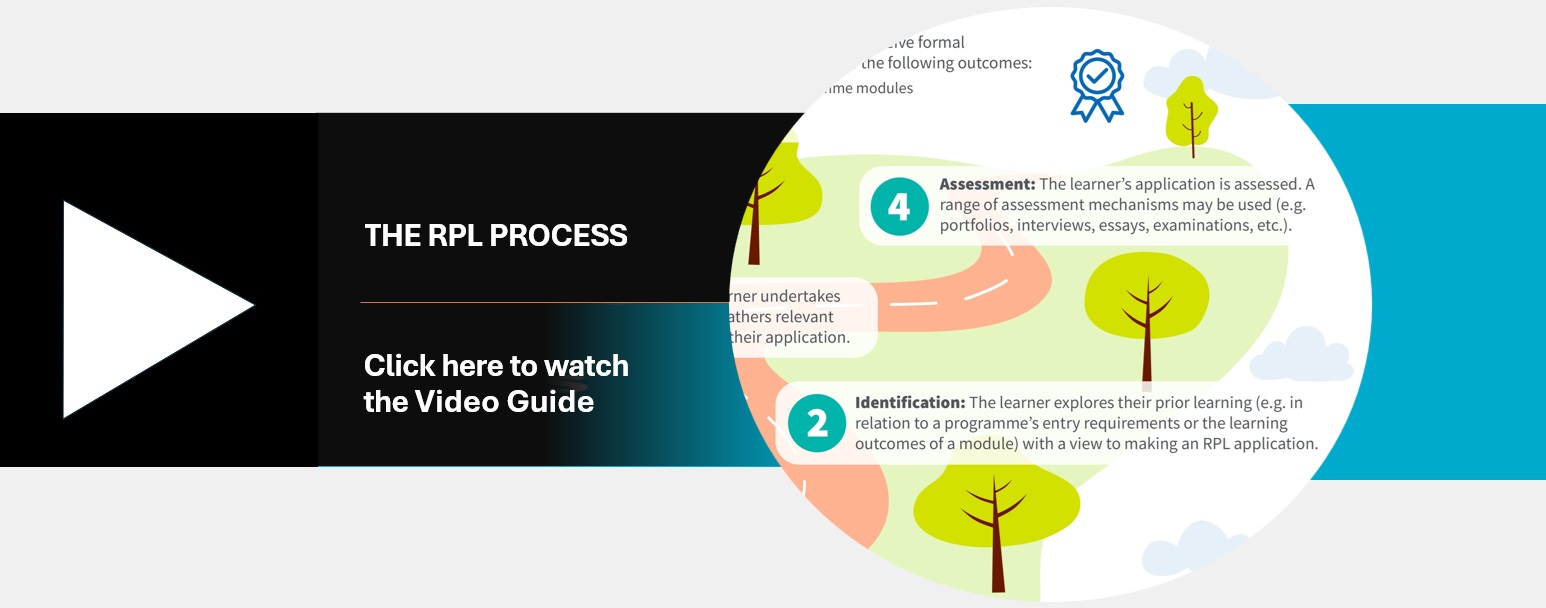
- The RPL Process
- Tools and Resources
- RPL Testimonials
- Frequently Asked Questions
- Glossary of RPL Terms
- Useful Links
The RPL Process - Assessment Principles
In assessing evidence of prior formal, non-formal and informal learning, the following criteria will be considered:
-
Relevance - The evidence will be relevant to the course of study and correspond to the learning outcomes of the module(s) and to the broader programme-level outcomes;
- Level - The learning will be at the required level, i.e., it will map to the appropriate NFQ level descriptors;
- Sufficiency - The evidence in support of RPL will support the claim that the learning
outcomes have been achieved;
- Reliability - The evidence of prior learning will be reliable, and it will be possible to verify that it is the learning of the applicant;
- Validity - The prior learning will match the required learning outcomes and will be
demonstrated by valid mechanisms. These may include, but are not limited to assessment procedures;
- Currency - The achieved prior learning will fit with current knowledge and practice.
The Five Stage Process
All RPL processes require the applicant to provide evidence of appropriate past learning, whether that is certificated or experiential learning. In some cases, it may be sufficient for the applicant to provide copies of appropriate certificates. In other cases, there may be a self-assessment exercise, preparation of a file or ‘portfolio’ of appropriate evidence of learning, an interview, and perhaps a demonstration or assessment task.
The process of RPL typically includes five stages. These are:



